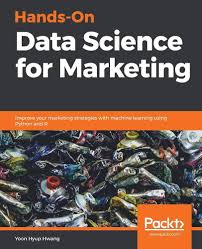Data Science for Marketing: A Comprehensive White Paper
1. Introduction
Data science has revolutionized the field of marketing, empowering businesses to make data-driven decisions, personalize customer experiences, and achieve significant returns on investment (ROI). This white paper explores the key applications of data science in marketing, covering core concepts, methodologies, and real-world use cases.
2. Core Concepts
- Data Collection & Integration: Gathering data from various sources (CRM, social media, website analytics, etc.) and integrating it into a unified data warehouse.
- Data Cleaning & Preparation: Transforming raw data into a usable format, handling missing values, and identifying and correcting inconsistencies.
- Data Analysis & Modeling: Employing statistical and machine learning techniques (e.g., regression analysis, clustering, classification, predictive modeling) to extract insights from data.
- Data Visualization & Communication: Presenting data findings in a clear and concise manner through dashboards, reports, and interactive visualizations.
3. Key Applications of Data Science in Marketing
- Customer Segmentation: Identifying distinct groups of customers with similar characteristics and preferences, enabling targeted marketing campaigns.
- Customer Churn Prediction: Predicting which customers are likely to leave the company, allowing proactive retention strategies.
- Demand Forecasting: Predicting future demand for products or services, optimizing inventory levels and resource allocation.
- Personalized Marketing: Delivering customized messages and offers to individual customers based on their preferences and behavior.
- Marketing Mix Modeling: Determining the optimal allocation of marketing budget across different channels (e.g., search, social media, email, TV).
- Customer Lifetime Value (CLTV) Prediction: Estimating the total revenue a customer is expected to generate throughout their relationship with the company.
- Website Personalization: Tailoring website content and experiences to individual user preferences, improving engagement and conversion rates.
- Social Media Analytics: Analyzing social media data to understand customer sentiment, identify influencers, and track campaign performance.
4. Data Science Tools & Technologies
- Programming Languages: Python (with libraries like Pandas, NumPy, Scikit-learn), R
- Big Data Technologies: Hadoop, Spark, Hive
- Cloud Computing Platforms: AWS, Azure, Google Cloud
- Business Intelligence & Data Visualization Tools: Tableau, Power BI, Google Data Studio
5. Use Cases
- E-commerce: Personalized product recommendations, targeted email campaigns, fraud detection.
- Retail: Customer segmentation, inventory optimization, demand forecasting, personalized promotions.
- Financial Services: Customer churn prediction, risk assessment, personalized financial advice.
- Healthcare: Patient segmentation, personalized treatment plans, disease prediction.
6. Challenges and Considerations
- Data Quality: Ensuring data accuracy, completeness, and consistency.
- Data Privacy and Security: Protecting customer data and complying with relevant regulations (e.g., GDPR).
- Ethical Considerations: Addressing bias and fairness in data-driven decision-making.
- Skills Gap: Finding and retaining skilled data scientists.
7. Conclusion
Data science is transforming the landscape of marketing, enabling businesses to make data-driven decisions that drive growth and improve customer experiences. By leveraging the power of data and advanced analytics, marketers can gain a deeper understanding of their customers, optimize their campaigns, and achieve sustainable competitive advantage.
8. References
- Books:
- "Data Science for Business" by Foster Provost and Tom Fawcett
- "Marketing Analytics: Data-Driven Customer Insights" by Paul Farris et al.
- "Predictive Analytics: The Power to Predict Who Will Click, Buy, Lie, or Die" by Eric Siegel
- Websites:
- Kaggle: https://www.datacamp.com/
- Towards Data Science:
- Online Courses:
- Coursera: Data Science Specialization by Johns Hopkins University
- edX: Data Science and Machine Learning by Harvard University
- Google AI: Machine Learning Crash Course
Note: This white paper provides a general overview. Specific applications and techniques may vary depending on the industry and business context.
This comprehensive white paper covers the key aspects of data science for marketing, including core concepts, applications, tools, and challenges. It also provides a list of relevant resources and incorporates Joomla CMS SEO considerations. Contact ias-research.com for details.



